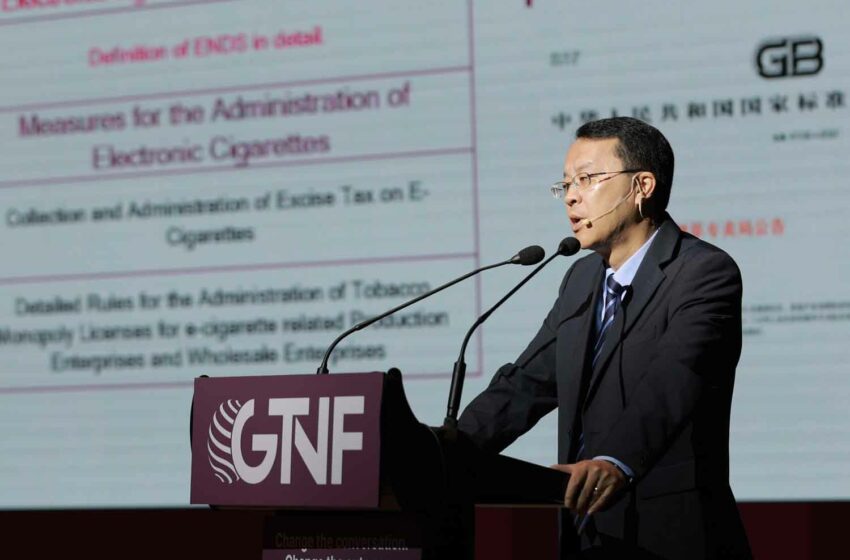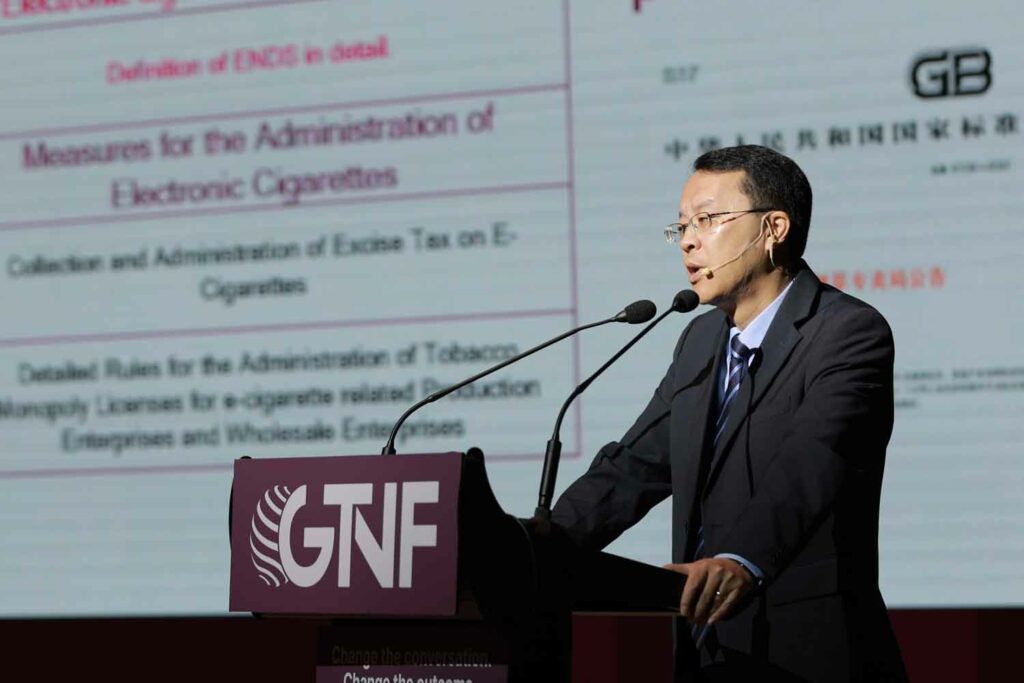Keynote: Ming Deng


Douglas Meng Deng, head of Next-Generation Products (NGPs) Industry Study at Yunnan University, provided an Asian view of regulation and innovation in NGPs. Evidence from bibliometrics, he pointed out, had shown that the number of articles and the frequency of citations on tobacco harm reduction (THR) have been steadily increasing. There has been dualization and dichotomy of studies of the role of NGPs in THR. Studies are either carried out by academic institutions or by the tobacco industry, and there is hardly any cooperation among multinational tobacco companies.
In his research of NGP regulation in Asia, Deng focused on the five countries with the largest populations and the largest number of smokers. In Japan, Deng explained, e-cigarettes containing nicotine were regarded as drugs, requiring a prescription from a doctor, which resembles a ban. By contrast, nicotine-free e-cigarettes are a niche product that can be commercialized without any flavor restrictions. In terms of tobacco taxation, heated-tobacco products (HTPs) are favored. The country has seen a decline in cigarette sales along with a surge in HTP combustible sales. Studies published in BMJ have stated a decrease in hospitalizations for chronic obstructive pulmonary disease and ischemic heart disease following the introduction of HTPs in Japan.
China implemented a comprehensive regulatory framework for NGPs called “1+2+N” in October 2022. It allows tobacco-flavored products only. Manufacturers, brand owners and retailers are obliged to obtain licenses. Electronic nicotine-delivery systems are subject to premarket review and approval, and HTPs are regulated as cigarettes. “E-cigarette penetration in China was never above 2 percent, and it has been decreasing further since the regulation was introduced,” Deng said. “The portfolio performance of listed vape companies has fluctuated drastically.”
Indonesia permits HTPs and e-cigarettes, allows online sales and regards national standards as an endorsement rather than mandatory. Multinationals’ HTPs have gained significant traction, Deng stated, showing that the country could potentially become a hub for NGPs in Asia.
By contrast, India has chosen to ban e-cigarettes and HTPs completely with its 2019 E-Cigarette Act. Offenders face penalties including a one-year jail term or a fine of inr100,000 ($1,202) or both. “The ban has led to a flourishing illicit market,” Deng said. “Insufficient controls together with weak age verification will probably raise the question about the effect of both tobacco control and THR in the country.”
Properties of NGPs, which the World Health Organization’s Framework Convention on Tobacco Control (FCTC) began discussing at its fourth Conference of the Parties (COP4), are still vague within the FCTC context, an ambiguity potentially leading to regulatory loopholes among member states.
Deng highlighted two innovations in the field of HTPs. South Korean KT&G’s Lil Aible integrates an artificial intelligence of things application in its heated-tobacco units while combining features of both vape products and HTPs. “The convergence of the two technologies may represent a future trend.”
NSC of China offers a product with an oxygen-free environment in which sticks are being heated, potentially offering a superior smoking experience, Deng explained. “Both developments underscore a fundamental principle in NGPs: understanding customer needs.”
Deng recommended that the next Conference of the Parties (COP10) to the FCTC, which will take place in Panama this November, clarify the harm reduction properties of NGPs. The FCTC itself, he said, should also undertake rigorous, evidence-driven research and faster communication with the industry.
For state-level regulators, Deng proposed introducing the regulator’s sandbox into NGP regulation and shifting from the “wait and improve” approach to “test and innovate.” “Regulatory sandboxes, commonly used in the financial sector, allow NGPs to be regulated at a close loop and encourage enterprises to innovate at the same time,” Deng said. “Regulators may monitor testing in real time while enterprises can get regulatory feedback simultaneously and adjust R&D accordingly.”
Deng called for the industry to engage in evidence-based and science-based studies and actively pursue publication. Multinationals, he argued, should cultivate the market through patent openness. “The industry is ready to enter the next curve of entrepreneurship, but it should keep in mind to innovate toward THR, not for youth, and facing ESG. Entrepreneurship and rapid commercialization of NGPs in Asia [are] the tobacco industry’s future, provided it can seamlessly integrate into the global tobacco value chain.”
He urged stakeholders to recognize that the diversity and multitude of cultures and languages in Asia demands a nuanced approach. “The multinationals should leverage the expertise of local Asian talents to solve issues specific to the region.”
